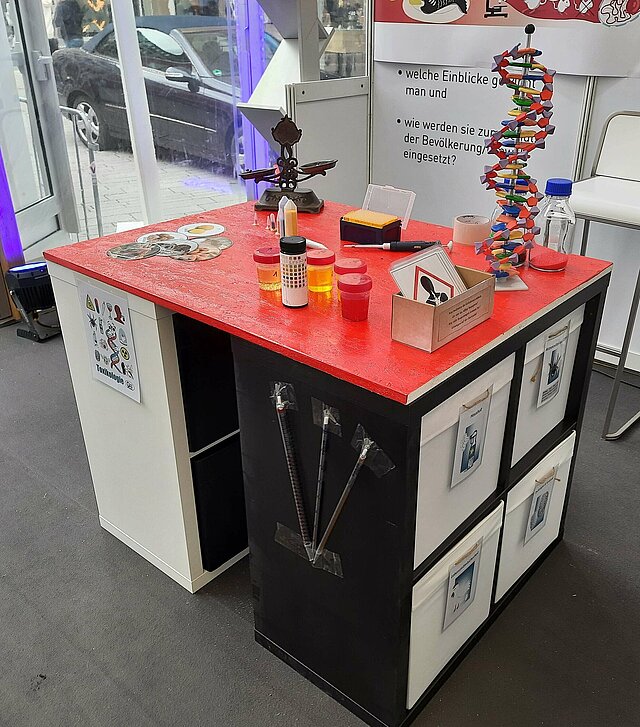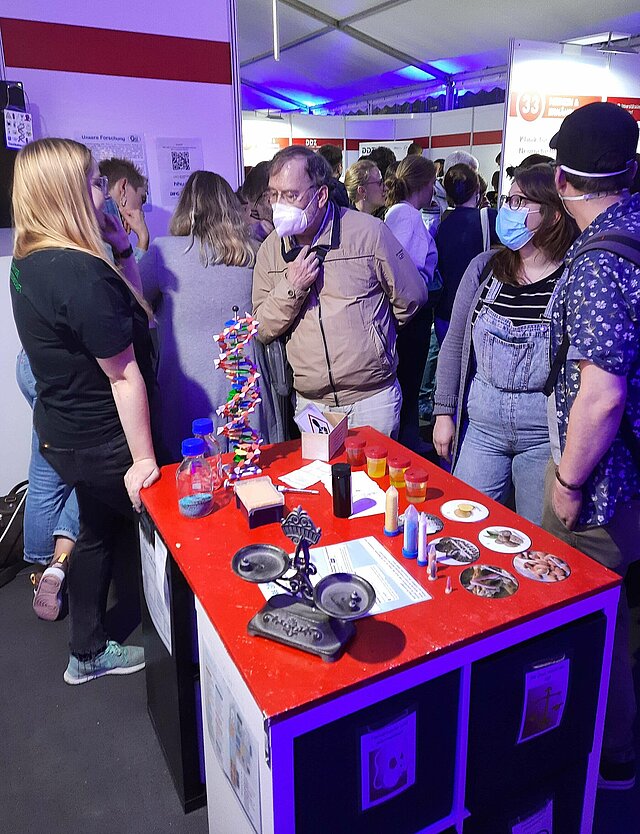News

Poster award for Leonie Thewes
For her presentation with the title 'Glutathionylation regulates activity of GPx4 and thereby sensitivity against ferroptosis' Leonie Thewes was awarded a poster prize at the 'Thiol oxidation in biology: Biochemical mechanisms to physiological outcomes' conference in Sant Feliu de Guixols (Spain). Congratulations for this great achievement and award.
Night of Science 2022!



We had an interesting time at this year's 'Night of Science' with our exhibit 'Toxicology is Diverse and Encounters Us Everywhere'!
Stem Day 2022
On March 11, the annual Uni Stem Day, organized by the Stem Cell Network NRW, took place once more. For 14 years now, the Stem Day has given students the opportunity to gain insights into stem cell research. This year, the Research Training Group participated in the event for the first time and welcomed 16 students of a biology advanced course and their teacher in the RTG laboratories.
The day started with an introductory lecture by the RTG speaker, Prof. Dr. Fritz. In one of the university lecture halls the students got first insights into stem cells, toxicology and how these two topics are related and researched within the RTG.
In groups of 2 or 3, the students were able to conduct some experiments together with the PhD students in the morning and afternoon. Each student could try out two of eight possible experiments, including microscopy, working with cells under the sterile bench or vitality assays. During a common break with the PhD students, the guests had the opportunity to ask questions about the day-to-day life of a scientist, going to university and doing a PhD and more.
At the end of the day, there was a short meeting in the lecture hall including a Kahoot quiz and a small prize for the winners. We hope that the participation in the Stem Day was informative as well as entertaining and interesting for everyone and we are looking forward to potemtially welcoming guests again next year!




